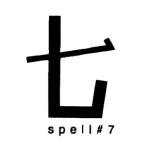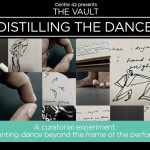spell#7 was founded in 1997 by husband-and-wife team, Paul Rae and Kaylene Tan. The couple met at the University of Bristol in England when they were studying drama. For the first two years of spell#7, Rae and Tan managed all aspects of their performances themselves, from writing and acting, to design and marketing. They even rehearsed in their own living room.
In 1999, they became the first group to be taken on by TheatreWorks as part of its resident-artist scheme. They were given administrative support and, more importantly, access to the old Black Box Theatre at Fort Canning Centre to create work in.
Being resident artists at TheatreWorks was a big step up for us. We had an office, half a monthly wage each, and we didn’t have to rehearse in our living room anymore!
Source: From Identity to Mondialisation: TheatreWorks 25 by TheatreWorks, p.112.
The company relocated to 65 Kerbau Road in Little India in 2002 under the National Arts Council’s Arts Housing Scheme, meaning that they were able to use the space at a heavily subsidised rate.
Over the years, spell#7 became known for staging innovative site-specific promenade theatre pieces – where audiences are free to roam around the set – in unconventional spaces. One notable example is Bud (1999), which took place in various parts of Zouk as part of the Singapore Arts Festival Late Night Series.
There are many things going on at the same time in their work. In the theatre, says Rae, the audience may be “baffled” because they feel “they are supposed to be taking in everything”.
Because the audience in a club has the freedom to circulate during a performance, “they choose how they construct their experience. If they don’t like something, they can go somewhere else”, he says.
Source: Zoukettes, choose your own artistic adventure by Clarissa Oon. In Straits Times (April 23, 1999).
spell #7’s works are also often rooted in personal relationships, and they have never been shy to draw inspiration from their own lives. A noteworthy example is their Duets series, which began as a work-in-progress in 2004, when Tan was eight-and-a-half months pregnant with the couple’s first child, Lola. The piece addresses the anxieties that a couple feels when they become parents for the first time, and it was staged as a full play the following year – with six-month-old Lola listed as their dramaturg. As Rae puts it:
We explored what it’s like to be two going on three, how to be two when a third is on its way. The aim has been to avoid her determining everything in our lives – but her arrival does determine the structure of the show.
Source: Child's play; A six-month-old baby inspires her parents to write Duets by Edward Choy. In The Straits Times (21 April 2005).
As the family eventually grew from two to four – baby number two, Summer, came along three years later – Rae and Tan would revisit the series every few years. This culminated in Family Duet (2013), which is created by and stars members from three generations: the couple, their two young daughters, as well as Rae’s and Tan’s mothers.
[Family Duets] is a raw and quietly heartwarming work – a barrel of laughs for the children in the audience, whose reactions to the work were sometimes funnier than the scenes themselves – and also a tender study of parenthood and the transformative journeys that families must face together. Source: Family snapshot; Children steal the show in this autobiographical production involving three generations by Corrie Tan. In The Straits Times (3 June 2013).
The family bid farewell to Singapore in 2014, when they made the move to Australia so that Rae could take up a new post as senior lecturer at the English and Theatre Studies department at the University of Melbourne. spell #7 is currently inactive, and as Rae said when they were planning the big move:
It’s hard to say what form [spell #7] will take because theatre is a local activity and so it does reflect the place it’s made in. So going to a new place, it’ll be interesting to take some time to see the lay of the land. It might be a very different thing that we do, especially because theatre is so much part and parcel of our lives. I don’t make theatre out of choice. I do it when I have to and I expect to have to because there are some ways of working out the world that we are able to do only by making theatre.
Source: Couple spell#7 out plans for new move by Corrie Tan. In The Straits Times (16 April 2014), http://tinyurl.com/j5msk6v
That said, a truncated version of their acclaimed 2006 work, National Language Class – which is inspired by Chua Mia Tee eponymous 1959 painting – was revived at the end of 2015 as an interactive performance art installation for ten days during the opening celebrations of the National Gallery. spell#7 even extended their revival with a full staging of the play the following January in the historic City Hall Chamber.
Selected works:
1999 – Bud
2002 – Various Gangsters
2004 – Desire Paths
2005 – Duets
2006 – Duets 2
2006 – National Language Class
2007 – Tree Duet
2010 – Epic Poem of Malaya
2013 – Family Duet
View the entire Repository collection of spell#7’s works:
http://repository.centre42.sg/company/spell7
Additional Sources:
- spell#7 Infopedia entry: http://eresources.nlb.gov.sg/infopedia/articles/SIP_2013-06-07_154855.html
- spell#7’s Facebook page: https://www.facebook.com/spellseven/
- The creation process of Family Duet documented in Tan Ngiap Heng and LASALLE’s Work in Process project: http://workinprocess.sg/details.php?vid=12
By Gwen Pew & Daniel Teo
Published on 9 June 2016
The Vault: Distilling the Dance is the first of three presentations focusing on local dance-makers’ responses to Singapore play-text. This is a part-research-part-presentation endeavour to investigate movement in space and the body through inspired by play-texts. In Distilling the Dance, dance artist Kiran Kumar works with spell #7’s audio archives. More information here.







